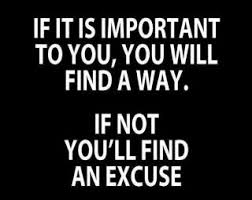Last week Nicole and I had lunch with a C-level exec who really gets what it means to break down silos and share responsibility, and why it’s so critical for organizations to do so these days.
He also gets how hard it is to do (which is what we are helping with), and so our conversation turned to accountability, responsibility, and shifting spheres of influence. What really stuck with me was his statement that for all managers, and particularly senior level leaders, the fact that another person or team has not finished their work does not excuse you from finishing yours. Click to Tweet

In other words, what have you done to help that person be successful?
But It’s Not My Job
Fair enough. Everyone has their list of tasks, accountabilities, and priorities. And if you need an input from another person or department in order to do your job, and that input is late or worse, incorrect, then yes… you have a problem.
Old-school thinking says it’s ok to throw your hands up in the air and say, “sorry – I’m waiting for X.”
Progressive business thinking says, “you are not excused from this accountability. How have you made that person or organization’s processes better so they can do their jobs? What is your sphere of influence and how have you “used it for good?”
Coaching to Influence
Great business coaches are able to help people self-realize areas of opportunity. By asking the right questions and being kind and curious, the coach is able to direct the individual to the right solutions, and these solutions are much more likely to remain ingrained in that person’s thoughts and habits – because they came up with them on their own! (Or so they think.)
In the same way, a great leader can influence individuals and peers so that they improve their own deliverables.
Consider a leader who is waiting for a set of business requirements before she can begin to implement a set of operational practices. If she is practicing effective project management, then she will be aware that those business requirements are likely to be late and she can approach her peer in that area to see how she and her team can help.
At the senior leadership level this is particularly effective, as Directors and VPs are more likely to be able to rearrange resources as required to solve such a problem. Yet any leader can benefit from this approach.
“How can I help?” is the question that will get this influencing coaching conversation underway.
It’s time for more leaders to adopt this approach and understand that it behooves them to make their peers successful. By doing so, they themselves will be successful and so will the organization.
Everybody wins, really.
Until next time,
Ruth.
PS – want to be a better coach? Sign up for our course. Click here for info.
